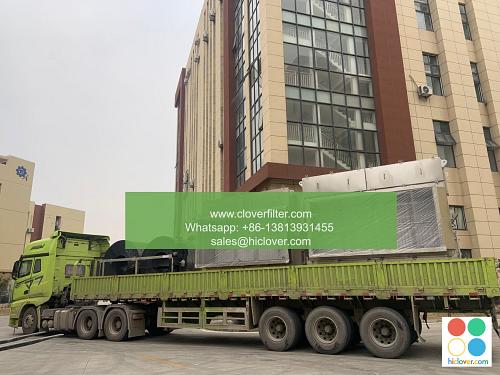The Importance of Air Filter Component Maintenance for Laboratories

Proper air quality is crucial in laboratory settings, where precise experiments and delicate instruments require a clean and controlled environment. One of the key components in maintaining good air quality is the air filter system. Air filter component maintenance is essential to ensure the system operates efficiently, effectively removing harmful contaminants, particulate matter, and gaseous pollutants from the air. In this article, we will highlight the importance of air filter maintenance in laboratories, its applications, and the benefits of regular maintenance.
Importance of Air Filter Maintenance
Air filters play a critical role in laboratory settings, where high-efficiency particulate air (HEPA) filters and ultra-low penetration air (ULPA) filters are commonly used to remove 99.97% of particles as small as 0.3 microns. Regular air filter maintenance is necessary to prevent the accumulation of contaminants, bacteria, and viruses that can compromise the integrity of experiments and put personnel at risk. Neglecting air filter maintenance can lead to reduced air quality, increased energy consumption, and premature equipment failure.
Applications of Air Filter Maintenance
Air filter maintenance is crucial in various laboratory applications, including:
* Biological laboratories: where Biosafety Level (BSL) 1-4 requirements demand strict air quality control to prevent the spread of biological agents and contaminants.
* Chemical laboratories: where hazardous chemicals and gaseous pollutants require enhanced air filtration systems to prevent exposure risks and environmental contamination.
* Pharmaceutical laboratories: where Good Manufacturing Practice (GMP) regulations require stringent air quality control to ensure the integrity of pharmaceutical products and patient safety.
Benefits of Regular Air Filter Maintenance
Regular air filter maintenance offers several benefits, including:
* Improved air quality: by removing harmful contaminants and particulate matter from the air.
* Increased equipment lifespan: by preventing premature equipment failure and reducing maintenance costs.
* Enhanced personnel safety: by minimizing exposure risks to hazardous chemicals and biological agents.
* Reduced energy consumption: by optimizing air filter performance and minimizing energy waste.
Best Practices for Air Filter Maintenance
To ensure optimal air filter performance and laboratory safety, follow these best practices:
* Regularly inspect and replace air filters according to manufacturer recommendations.
* Use high-quality air filters that meet or exceed industry standards.
* Monitor air quality using air quality monitoring systems to detect contaminants and particulate matter.
* Train personnel on air filter maintenance and laboratory safety protocols.
In conclusion, air filter component maintenance is crucial in laboratory settings to ensure good air quality, personnel safety, and equipment longevity. By understanding the importance of air filter maintenance and following best practices, laboratories can minimize exposure risks, reduce energy consumption, and optimize air filter performance to meet the demands of various laboratory applications. Prompt

